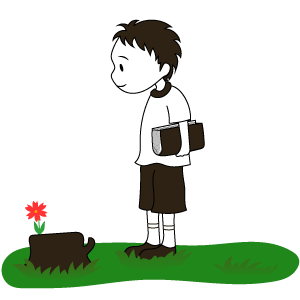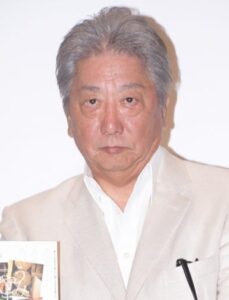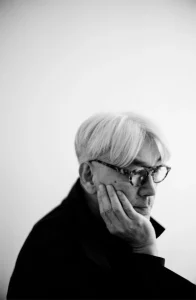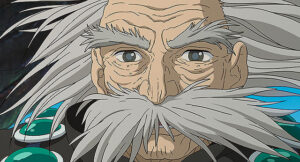(I’m sorry, this is a repost of an article I used to post on my Hatena blog. (This is a repost of an article I once posted on my Hatena blog (sorry, it’s a bit harsh).
Some time ago, I saw a movie called “Looking for Yutaka Ozaki” at a movie theater.
I had been looking forward to seeing this movie ever since I heard that a famous documentary filmmaker was going to make a movie about Yutaka Ozaki.
As for the rating, you can check the movie reviews on Yahoo or elsewhere, but to sum up my impression in one word, it was “too bad.
It was the first movie in my life that made me feel shocked, not at the level of “boring” or “dull”. I was so shocked that I went back to see the Star Wars movie again.
I have always tried to watch a movie until the end rolls, no matter how bad I thought it was, and try to find the good parts, but this was the one and only movie that made me want to get out of my seat halfway through.
The details of its awfulness are exactly as described in the various movie reviews, but what made me the most angry was that the filmmaker did not understand Yutaka Ozaki, a genius who never made it to the top of his game, at all.
In fact, I didn’t feel any love or hate for Yutaka Ozaki, even though that feeling should have been the most important thing.
In this kind of documentary-style film about a specific person, you either fall deeply in love with that person or, conversely, you hate him or her.
Yutaka Ozaki’s fans, both at the time of his death and now, have been called various things, such as “Ozaki followers” and “Ozaki fanatics,” sometimes mocked and sometimes ridiculed. However, no matter what anyone says, I love Yutaka Ozaki.
I don’t like to boast about how much I like my fans, but at the time of his death, I was working as an office worker in Tokyo and was so shocked by the news of his passing that I was dizzy and stood on my feet.
I left work early that day and found myself heading for Kitasenju, where Yutaka Ozaki lived.
The police officer who was in charge of organizing the crowds was also in a state of panic, not understanding the meaning of the crowds. Instead of showing me the way to my apartment, I was questioned by the police, who turned me away.
On the day of the memorial service, I skipped work and went to Gokokuji Temple, where the memorial service was held, and stood in a long line in the cold and rain, waiting my turn in the rain, patiently waiting to use the restroom. (I’ll tell you another story about how I caught a cold and had to take three days off work, which made it difficult for me to stay at the office.)
But enough fan bragging, I used to read a magazine called “Wild Age” published by Kadokawa Shoten at the time, which regularly featured a conversation between Yutaka Ozaki and a young novelist. Every time I read it, I wanted to become a novelist as soon as possible and have a dialogue with Yutaka Ozaki as a novelist.
I even wanted to win the Akutagawa Prize for that purpose (as silly as that sounds). So Ozaki’s death disappointed me from the bottom of my heart, like an athlete who has lost his goal.
And back to the movie again, Yutaka Ozaki, as you know, was truly a guru of the youth. Good looks, good lyrics, good melody, good message.
He was a complete rocker for me. In this film, though, that was pushed too much to the forefront, to the point where I felt it was more of a mockery than a performance.
All of this is part of Yutaka Ozaki’s charm, but it is only part of it. If that were all there was to it, there would have been many more such as Sid Vicious and Hiroto Komoto, from all ages and cultures. If Yutaka Ozaki had released three original albums in his teens and died before going to New York, he probably would have ended up as a regular popular rocker (which is great enough).
The opening scene of this film begins with a street interview of middle and high school students, “Do you know Yutaka Ozaki?” most of the young people answered that he was the one who sang “I Love You”. Perhaps, he is just one of the pop stars who were popular in the past.
The real greatness of Yutaka Ozaki came after he indefinitely suspended his music career, went to New York, and was caught with drugs. The message and thoughtfulness of his lyrics, in particular, have deepened considerably. Unfortunately, however, this truly amazing real value is not portrayed at all in the film.
Ozaki (further titles respectfully omitted) is on trial for drugs, and after a lengthy house arrest, he suddenly finds himself back on a music show that he had never been on before. It was a Wednesday night singing show called “Yoru no Hit Studio”.
There, she sang a song titled “Fragments of the Sun,” which was inspired by the sun seen through the window of a prison cell over the fence (the song is still uploaded on YouTube, so please check it out). ), and the impact of the lyrics and outstanding singing overwhelmed all the performers around them, including the Checkers (who probably have similar sensitivities), and gave them all a standing ovation.
The performance was just as wonderful, just as divine, and just as passionate. And the lyrics were exactly as brilliant as the fingertips of a piano, which could not have been written without experiencing deep frustration.
Thus, Ozaki returned and released a double CD, “Birth,” with a foreign backing band. In one of the songs, “Eternal Heart,” he says to his fans, “I can’t see anything because I’m in tears.
Even if you can’t see anything through your tears, I’ll always be here. Yes, this is it. This was his true essence, his achievement as a singer and his ideological achievement as an artist. Even listening to it now, it makes me cry.
When he offered up from the messenger of defiance and rebellion that he had been not so long ago, to a state of being similar to the Buddha (perhaps an exaggeration), he became a true guru in a sense.
Some time later, after Ozaki had a love affair with a certain famous actress at the time (I recall her referring to Ozaki as her “comrade”), I was asked to speak to her about the relationship between the two of them. It is a wonderful way to understand and relate), he released an album titled “Radiation Testimony,” in which he reflects on his sordid ties with those who flocked to him to take advantage of him, mourns the mother he loved in the songs, and sings sadly in one of them, “Nobody knows who I am.
And after releasing his last album, he dies in complete white loneliness, as if committing suicide. I believe that the most important part of the film is the fact that even after his death, he left many thoughts and feelings behind for many people. From a “rock ‘n’ roller” to a thinker.
As Ozaki once said in an interview, “I hope to write novels while teaching karate to children” when he could no longer sing in his later years, he wrote his debut novel “Ordinary Love” (which, to be honest, was not very good), and I am sure that he intended to write novels in the future. I, too, feel that if Ozaki had continued to live the way he did, he could have become a real novelist someday.
His own life itself was like a legend, but he wanted to sublimate his own feelings and experiences into a story.
The title of this film, “In Search of Yutaka Ozaki,” suggests that the film could have been about a genius rocker who became a novelist through a series of setbacks and contemplations at the end of a long and painful life. That is the true “how to find Yutaka Ozaki.
At one of his live performances, before singing the song “Map of a Seventeen-Year-Old,” Ozaki exclaimed, “I want all of you who are here today to know that I am a genius. If there are those among you who are here today who are walking to find real love and truth, I will put my life on the line for them” And indeed, Ozaki did put his life on the line and died.
And, inspired by Ozaki’s magnificent words, I am still in the process of searching for the real truth while writing a novel that I can’t even guess at. By the way, my favorite song by Ozaki is “Somebody’s Horn”, which I must have listened to 10,000 times.
See you soon!












-192x300.jpg)